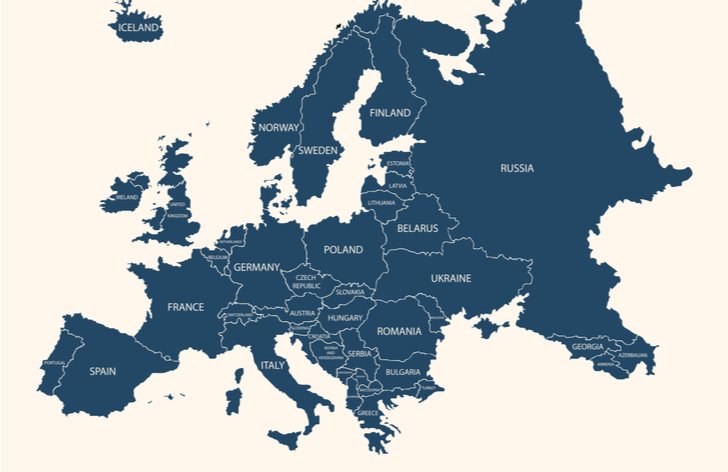* Exit comes weeks before May election
* Topolanek taps election leader Necas as next chairman
* Analysts question if party can rally behind new leader
(Adds analyst quote, background)
By Robert Mueller and Jan Lopatka
PRAGUE, April 1 (Reuters) - Former Czech prime minister
Mirek Topolanek said on Thursday he would resign as head of the
Civic Democrats, in a move aimed at uniting the right-wing party
behind its leading candidate in a May parliamentary election.
Topolanek, 53, quit as the party's top candidate last week
after a series of gaffes and scandals alienated his colleagues
and damaged the Civic Democrats' standing before the vote.
The party hopes that Petr Necas, a conservative untainted by
graft accusations who has been tapped to lead them into the May
28-29 vote, can revive their flagging popularity and narrow a
gap in support with the leftist Social Democrats that has
swollen to as much as 13 points in opinion polls.
Topolanek told reporters he would resign after an April 12
meeting of the party's executive committee and said Necas should
lead the party after his exit.
"I have decided that I will prevent at all costs a
double-track (leadership) in the time before a regular congress
(in the autumn) and all my steps lead to having the present
election leader Petr Necas running the party," he said.
^^^^^^^^^^^^^^^^^^^^^^^^^^^^^^^^^^^^^^^^^^^^^^^^^^^^^^^^^^^
For graphs showing the development of support for the main
parties, click on http://r.reuters.com/veb24j and
http://r.reuters.com/hef34j
^^^^^^^^^^^^^^^^^^^^^^^^^^^^^^^^^^^^^^^^^^^^^^^^^^^^^^^^^^^
Topolanek said he would resign after the executive committee
agreed to hand Necas the reins of the party, a move which is
unlikely to be opposed.
The Czech Republic needs a strong government to revamp the
budget, which showed deficits even during times of strong
economic growth prior to the global financial crisis.
The Czechs have had a caretaker cabinet led by Jan Fischer
for the past year after Topolanek's cabinet fell midway through
the the country's six-month European Union presidency.
COALITION BUILDING
Polls show that while the Social Democrats will get the
largest share of the vote, they will fall short of a majority
and may have trouble finding partners to form a coalition.
Both the big parties have lost popularity since the last
election as many Czechs grew frustrated by a string of graft
scandals, leading to rising support for new, smaller parties.
This has made predicting the make-up of the next government
difficult. Analysts see a minority Social Democrat-led cabinet,
supported in parliament by the Communists, as one possibility.
A grand coalition of the two biggest parties is another
possibility, although Necas ruled that out last week.
His biggest immediate challenge will be uniting a party torn
by infighting, a step analysts believe will be difficult.
"I think that Petr Necas, although seen as a decent
politician, lacks the authority to unite the party in such
disarray and this may be a problem in the future," said Jiri
Pehe, director of New York University in Prague.
Topolanek led the Civic Democrats since 2002, winning the
leadership role over Necas in a tight vote. He was a strong
supporter of close links with the United States and tempered the
party's earlier scepticism towards EU integration.
But over the past year he has struggled through a series of
public embarrassments, the latest a newspaper leak of private
remarks by Topolanek that could be seen as insensitive to the
church, gays and Jews.
Necas is a conservative from the east of the country, who in
contrast to Topolanek, has a calm demeanour and maintains tight
control of his public image. A former social affairs minister,
Necas formulated the party's policy of tightening social
benefits and plans to reform the pension system.
(Writing by Jana Mlcochova and Jason Hovet; editing by Noah
Barkin)
www.finance.czZprávy
UPDATE 2-Topolanek to quit as Czech party leader before vote
Vstupní pracovnělékařské prohlídky již nejsou povinné pro všechny. Kdo se jim vyhne?
Od 1. června 2025 jsou v účinnosti nová pravidla pro pracovnělékařské vstupní prohlídky. Zaměstnanci zařazení do první kategorie již nemusí povinně…
Mladý může dostat víc než starší. Zajímavosti o výpočtu invalidního důchodu
V Česku jsou vypláceny invalidní důchody prvního, druhého a třetího stupně. Pro přiznání invalidního důchodu musí být splněny zákonné podmínky a…
Průměrný výdělek zaměstnance je věda. Jak se počítá a kdy který použít?
Od průměrného výdělku se odvíjí celá řada nároků zaměstnance vůči zaměstnavateli (např. náhrada mzdy za dovolenou) nebo vůči…
Nejen trvalé krácení. Co všechno ovlivní přiznání předčasného důchodu?
Při odchodu do předčasného důchodu je přiznaný měsíční důchod pochopitelně nižší, krácení závisí na termínu předčasnosti. To však není vše. Jaká…
Den otců je tu. Jaké výhody mohou získat tatínci, tátové a fotři?
Na neděli 15. června připadá Den otců. Není to v našich končinách zatím příliš slavený svátek, jeho popularita však pomalu stoupá. Viditelně…
Aplikace na podnikatelský odpad vydělá městům miliony. Živnostníci ji budou nenávidět
Živnostník neplatí, město tratí. Českým obcím unikají miliony kvůli tomu, že drobní podnikatelé často netuší, že mají zákonnou povinnost platit za…
Pouze každá desátá žena vydělává v Německu více než její partner. Proč?
Do rozpočtu německých domácností přispívají zpravidla více muži než ženy. Německo patří mezi členské země Evropské unie s nejvýraznějšími mzdovými…
Preferovaný potomek vs. opomíjený. Co rozhoduje o výši dědictví?
Pokud rodiče po majetkové a finanční stránce preferovali některé ze svých dětí a dávali mu hodnotné dary a poskytovali…
Kdy musejí penzisté platit daň z příjmu a proč se týká jen někoho
Většina starobních důchodců nemá žádné daňové starosti. Kdy však musí starobní důchodci platit daň z příjmu? Jak se vypočítává daň z příjmů z…
Máslo a vejce jsou dražší než v letech s dvoucifernou inflací, cukr už zlevnil
Stále vás překvapují některé ceny při nákupu běžných potravin? Není divu. Ačkoli dříve nevídané plošné zdražování z nedávných let snad ustalo,…
Poslanecká sněmovna zrychleně schválila snížení důchodů pohlavárům
Poslanecká sněmovna začátkem června hlasovala o novele zákona o organizaci a provádění sociálního zabezpečení, která má…
Na plné uznání zapomeňte. Jak se počítá evidence na Úřadu práce pro důchod?
Měsíční částku starobního důchodu ovlivňuje celý průběh pojištění. Čím vyšší rozhodné příjmy a čím vyšší získaná doba pojištění, tím je měsíční…
Samosběr třešní 2025: kde letos zaplatíte nejméně za kilogram?
Samosběry třešní jsou v plném proudu a pěstitelé napříč Českem otevírají své sady veřejnosti. Cena za kilo se letos pohybuje mezi 50 a…
Jaké příjmy musíte mít na průměrný důchod? A mohou na něj dosáhnout i předčasní důchodci?
Jaké příjmy musíte mít, abyste dosáhli na průměrný starobní důchod v roce 2025? A jaké příjmy musíte mít, abyste jako předčasní důchodci dosáhli na…
Poprali jste se a způsobili někomu zranění? Kdo musí platit zdravotní pojišťovně regresní náhrady
Zdravotní pojišťovny mají právo na úhradu nákladů spojených s čerpáním zdravotní péče, pokud dojde k jejich vynaložení v důsledku protiprávního…
Zvýšení příspěvku na péči neprošlo, ale naděje ještě nezhasla
To, zda se zvýší příspěvek na péči alespoň v prvních stupních závislosti, zatím není jasné. Je však jisté, že to nebude prostřednictvím…
Nárok na vyšší podporu v nezaměstnanosti přijde později. Rozdíl bude v tisících
Společně se změnami v zákoníku práce dojde i ke zvýšení podpory v nezaměstnanosti. O kolik a kdy se to stane?
Všichni platí státu stejně? Ale kdepak. Od jaké mzdy začíná zdanění práce klesat
Celkové zdanění práce zaměstnanců s velmi vysokou roční hrubou mzdou je v Česku nižší než zaměstnanců „pouze“ s nadprůměrnou mzdou. Jak je to…
Bez ukazování pasu v létě dojedete k dalším evropským mořím
V začínající letní turistické sezóně mohou lidé ze zemí Schengenského prostoru využít nové cestovatelské výhody. Díky novoročnímu plnému zapojení…
Vyšší životní minimum: více peněz i širší nárok na sociální dávky
S účinností od 1. 5. 2026 se zvýší některé částky životního minima, které ovlivní řadu sociálních dávek. Díky této změně se zvýší nejen některé…
Nejlépe s minimální mzdou vyžijí zaměstnanci v Lucembursku. Jak si stojí Češi?
Minimální mzda je legislativou zavedena nejenom ve většině členských zemí Evropské unie, ale i např. v USA, v Kanadě, v Japonsku, v Austrálii nebo…
Penzijní spoření pro děti vám daně nesníží, část peněz však lze vybrat
Doplňkové penzijní spoření pro děti můžete svému potomkovi sjednat v podstatě hned cestou z porodnice. Proti smlouvě uzavírané dospělým investorem…
Platit v cizině kartou je výhodnější, ale ne bez rizika. Na co dát pozor na dovolené?
Sezóna dovolených začala a s ní se vrací každoroční otázka: platit v zahraničí raději hotově, nebo kartou? Rizika i výhody přinášej obě možnosti.…
Může být ztráta důvěry důvodem pro rozvázání pracovního poměru?
Prokazatelná ztráta důvěry pomáhá zaměstnavateli ukončit pracovní poměr se zaměstnancem rychle jeho okamžitým zrušením než…
Líp už bylo? Deset důchodových změn k horšímu z posledních let
Podmínky pro výpočet řádného i předčasného důchodu se během posledních let změnily. Podívejme se na vybrané negativní změny, které zpřísňují…
Zaměstnanci v rizikových profesích si budou muset o příspěvek na předdůchod říct sami
Nová pravidla důchodového zabezpečení počítají s tím, že zaměstnavatelé začnou povinně přispívat zaměstnancům ve 3. rizikové…
O kolik vám zkrátí důchod každý další interval předčasnosti? Počítejte s námi
Při odchodu do předčasného důchodu je nutné počítat s trvalým krácením penze právě z důvodu dřívějšího odchodu. Krácení za přitom provádí za…
Začal platit nový zákoník práce. Změny se týkají zkušební doby a výpovědní lhůty
Začala platit novela zákoníku práce. Mění běh výpovědní a zkušební doby, ale i práva osob na rodičovské dovolené. Jak?
Výhoda pro zaměstnance, nebo pro zaměstnavatele? K čemu je dobré přerušení pracovní cesty
Přerušení pracovní cesty umožňuje zaměstnanci skloubit plnění pracovních úkolů se soukromými záležitostmi a ušetřit náklady…
Jahody levněji než v obchodě? Na plantážích začínají samosběry
Sezóna jahod je opět tady a s ní i možnost výrazně ušetřit díky samosběrům. Místo drahého ovoce z obchodů si můžete jahody…
Tohle může vážně ohrozit váš důchod. Proč jsou mezery v pojištění problém?
Každé sociálně nepojištěné období má negativní důchodové následky. V nejhorším případě není starobní důchod vůbec přiznán, v lepším případě je…
Jak dlouho a kolik musíte vydělávat na předčasný důchod 21 000 Kč?
Pravidla pro předčasný důchod se během let zpřísňují, přesto je o něj stále zájem. Ve kterých případech bude předčasný důchod vyšší než 21 tisíc…
K práci ještě vedlejšák a do důchodu o to dříve? Takhle to nefunguje
Někteří zaměstnanci si přivydělávají výkonem samostatné výdělečné činnosti. Mají tedy současně dva příjmy. Jeden ze zaměstnání a druhý z podnikání…
Krácený stejný jako řádný? O kolik musíte mít vyšší příjmy kvůli předčasnému důchodu
Při odchodu do předčasného důchodu je nutné počítat s trvale nižším důchodem. Někteří lidé mají předčasný důchod i přes krácení stejně vysoký jako…
Zaměstnanecké benefity mají po rozdělení nové limity, bez daně můžete dostat víc než průměrnou mzdu
U zaměstnaneckých benefitů se změnily roční limity pro osvobození od daně a dále také došlo k rozdělení dvou kategorií. Co to znamená pro zaměstnance?
Mladí mohou v létě na brigádu už od 14 let. Co se u nich bude muset dodržet?
Chystá se vaše dítě na letní brigádu? Na co by se mělo připravit a změní se něco se snížením věku, od kterého mohou mladiství pracovat?
Pamatujte na nemoc. Kdy ani s vysokým příjmem nedostanete nemocenskou?
Pouze při splnění zákonných podmínek lze dostávat na účet nemocenskou. Podívejme se několik vybraných příkladů, kdy ani vysoké příjmy nestačí k…
Srovnání spořicích účtů v květnu 2025: kdo nabízí nejvyšší úrokové sazby?
Spořicí účty se v době vysoké inflace těšily velké oblibě. Jaké úrokové sazby nabízejí banky a spořitelny nyní? Můžete dosáhnout na 4% úrokovou sazbu…
Právo na výchovné má i ten, kdo zvládl péči bez ztráty příjmu, řekl soud
Nejvyšší správní soud rozhodl ve prospěch vdovce, který po smrti manželky sám vychovával dceru. ČSSZ mu odmítla přiznat výchovné s odkazem na to, že…
Podnikáte při zaměstnání? Pozor na pokutu za pozdní podání přehledu o příjmech
Za neodevzdání přehledu o příjmech a výdajích zdravotní pojišťovně v zákonném termínu hrozí poměrně vysoká pokuta. Co je dobré vědět a jak se…
Zaměstnanci veřejného sektoru si díky rozšíření náhradních dob mohou přijít na vyšší výdělky
Od 1. června 2025 se rozšíří okruh tzv. náhradních dob, které se započítávají do praxe pro výpočet platového stupně ve veřejném sektoru. Nově se bude…
Daň z nemovitosti musíte zaplatit do 2. června. Už máte platební údaje?
Jste vlastníkem nemovitosti? V takovém případě se vás až na výjimky týká povinnost zaplatit z ní jednou za rok daň. Jak to provedete a co se stane,…
Prací ne, změnou zdravotního stavu ano. Kdy se změní částka invalidního důchodu?
V Česku se vyplácejí tři druhy invalidních důchodů: prvního, druhého a třetího stupně. Během pobírání invalidního důchodu může dojít ke změně jeho…
Vypadá jako byt, ale byt to není. Makléř varuje před nástrahami ateliérů
Ateliér může na první pohled vypadat jako běžný byt, ale legislativně jím není. Co všechno by měl kupující vědět, než si pořídí nemovitost, ve které…
V pěti zemích EU je minimální hodinová mzda přes 12 eur. Jak si stojí Česko?
Ve většině členských zemích Evropské unie je legislativou zavedena minimální mzda. V Lucembursku, v Nizozemí, v Irsku, v Německu a v Belgii je v…
V daňovém přiznání je chyba. Budete podávat formulář opravný, nebo dodatečný?
Zjistili jste v daňovém přiznání chybu? Nebo na ni dokonce přišel finanční úřad? Chybu budete muset opravit. Podáváte pak přiznání opravné, nebo…
Pět důchodových chyb, které vám mohou důchod zkrátit o tisíce
Podívejte se na pět důchodových chyb, které mohou přiznaný důchod zkrátit o tisíce korun. Jak se chyb vyvarovat a kdy (ne)dají opravit? A může se i …
Může se předdůchodce stát předčasným důchodcem? Deset výhod předdůchodu
Jednou z možností, jak přestat dříve pracovat, a přitom se vyhnout odchodu do trvale kráceného předčasného důchodu, je čerpání předdůchodu. Jaké…
Zkrácený úvazek vám pomůže s důchodem, ale možná si připlatíte. Co ještě potřebujete vědět?
Pro některé zaměstnance je práce na zkrácený úvazek možností, jak skloubit kariéru s osobním životem. Jak je to však se zdaněním zkráceného úvazku…
Povinnost mlčet o výši mzdy zmizí od 1. června z pracovních smluv
Od 1. června 2025 přichází důležitá změna pro zaměstnance i zaměstnavatele – doložky o mlčenlivosti týkající se výše mzdy už nebudou moci být…
Hledáte...
...odbornou radu?
...další informace?
...informace k investování? 
...informace k podnikání? 
...informace pro studenty? 




















































